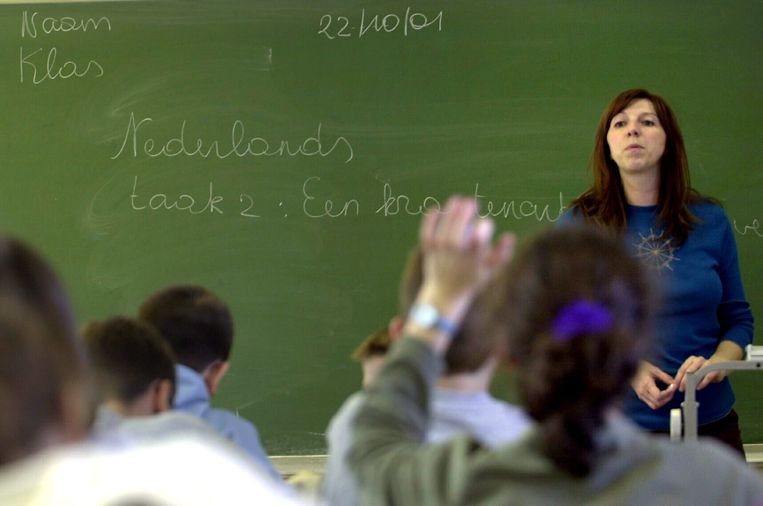While the leader of the Flemish social-democratic Vooruit party, Conner Rousseau, previously called Flemish Education Minister Ben Weyts' proposal to punish parents if children score poorly in Dutch language tests "moronic," he has now reversed his position, stating that he would be "open to" financial sanctions.
Last week, Weyts proposed to combat 5-year-olds' poor Dutch language results – a trend mainly seen in big cities – by punishing parents more severely if they do not make an effort to teach the language to their children, possibly by taking away their child benefits. In schools where many pupils do not speak Dutch at home, an average of one in four children scores insufficiently.
Initially, Rousseau called this proposal to take away their child allowance or other government premiums "moronic," but later seemed to come back on his words during the Flemish entertainment programme De Tafel van Vier. "Unfortunately, in the interest of the child, you sometimes need a financial sanction, but not one that affects the child."
The statement, however, drew a lot of heavy criticism from other politicians, as well as from the public – who were no longer able to distinguish between Weyts' rightwing and Rousseau's socialist point of view. In a debate between the two politicians on VRT's television programme 'Terzake' on Tuesday evening, Rousseau stressed that he still stands by his initial statement.
Learning Dutch after school
"Of course, I think it is very important that parents are involved in their child's school career and can communicate," he said. "But taking away their child allowance is not the solution; there should be extra options for parents to learn Dutch. The fact that these lessons are now becoming paid is a bad idea, we think."
Still, for parents who really do not want to cooperate, Rousseau is "open to discussing measures" with experts. "The child must be unaffected, and the measures must lead to something and be verifiable. You cannot check whether people speak Dutch at home, but we have to start with giving them more offers and tools."
While Weyts stressed that it was never the intention to check whether people spoke Dutch at home, he also stated that parents "do have to introduce their child to Dutch after school" regardless of their home language, as children who "come into contact with Dutch more often have better results."
Related News
- Compulsory exam for Belgian citizenship proposed by Flemish party
- Becoming Belgian: Who is eligible for citizenship, and how to apply
- Teacher shortage poses biggest threat to school performance
Rousseau, however, said that this language issue could not be solved with extracurricular activities alone, as enough attention must be paid to language while at school. "And this is not possible if kindergarten teachers are standing in front of a class of 28 children," he said, referring to the glaring teacher shortage. "Teachers do not feel heard and parents are distraught."
The proposal came at the same time that one in three (35%) people with children in Flanders said that they cannot make ends meet financially without the child benefits (called 'Growth Package') they receive from the government.
Before the financial crisis, that number was a lot lower, as "just" 21% called the benefits necessary to make ends meet, the results of a survey commissioned by the Gezinsbond nonprofit ("Family union"). Now, 40% of Flemish people are dissatisfied with their current financial situation, 30% worry that they will not be able to manage for long (with three or more children, this rises to 45%) and 34% of Flemish people indicate that they would currently have difficulty with an unexpected expense of €1,000.

